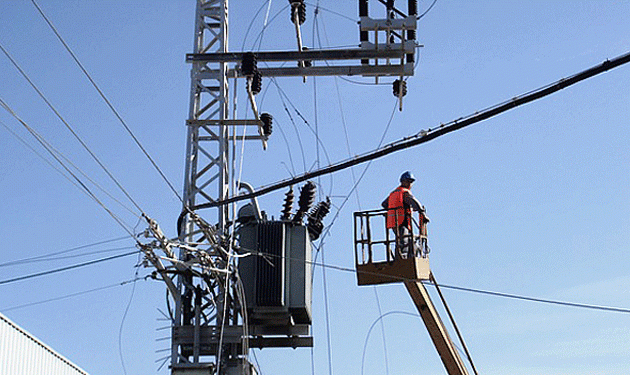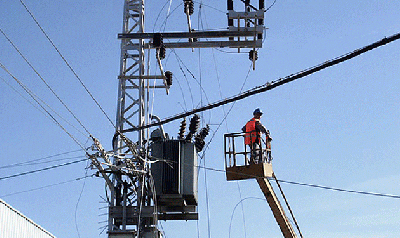As the summer season approaches, with energy being an urgent necessity for the Lebanese people, particularly for the tourism sector, the situation seems to be stuck in place in finding solutions capable of partially addressing the electricity crisis that has persisted for years in Lebanon. This issue is not merely about securing fuel or opening credits for it but extends to the maintenance of power plants and securing the necessary equipment. There are also significant questions surrounding the role of the operating company for the Jiyyeh and Zouk plants and the concerns associated with it, in addition to the ongoing ministerial conflicts over renewable energy projects, particularly the Qatari offer which could notably improve electricity supply.
These accumulated issues within this vital matter are discussed in an interview with legal energy expert, lawyer Cristina Abi Haidar, by "Nidaa al-Watan" newspaper.
**Real Problems**
Abi Haidar begins by clarifying that amid all that is happening, politicians portray the electricity problem to the Lebanese public as if it solely revolves around the import of fuel and gas, asserting that the lack of these materials in required quantities is the reason for power outages. She emphasizes that while this is indeed a real and fundamental problem, as the country has fallen into darkness due to a shortage of dollars and the inability to purchase fuel and gas for generation, there are other significant issues related to the electricity crisis that are not highlighted.
She outlines these problems, noting that one of the primary issues is the lack of sufficient quantities of fuel and gas, relying solely on one source of fuel which is Iraq. Thus, questions arise: Has the new contract with Iraq started? What quantities are being imported? What compensation is Iraq receiving? Is there a plan to diversify energy sources? These questions are raised to clarify the sustainability of the contract and the period that the imported quantities might cover.
Abi Haidar continues, indicating that the problem is not limited to the previously mentioned points; there is also an issue with maintenance and operation. The existing plants are either directly operated by Electricité du Liban or through private sector operators. Currently, some of these plants have ceased production due to legal issues with several companies responsible for maintenance and operation. Hence, what is the fate of these non-operational plants? What is the status of arbitration claims?
**A Key Point**
Abi Haidar addresses a third fundamental point, which is the network itself. She states that there are three types of networks, experiencing significant technical waste due to a lack of rehabilitation. No budget has been allocated for the development, expansion, or even rehabilitation of the network for years. What is the fate of the network? This issue leads to another related matter involving the low-voltage network in neighborhoods controlled by service providers. The contract with service providers expires at the end of next September without the possibility of renewal unless a transparent tender is conducted according to public procurement law, which entails organizing a clear and detailed terms of reference that opens the door for competition. It is important to note that issues persist with service providers; what will happen in their absence? What is the potential for renewal? Is there legal coverage for that? Will a new tender be launched? Who will replace the service providers? Does Electricité du Liban have the capacity to undertake these responsibilities amidst the various challenges it faces? Especially with September approaching and preparations for the tender not having begun or any decision taken in this regard.
**Total Energy and Qatar Energy Offer**
Abi Haidar recalls the offer presented by Total Energy and Qatar Energy to secure 100 megawatts of solar energy. This initiative is welcomed, particularly as Lebanon needs to diversify its energy sources. It is a step that encourages the use of renewable energy and helps the country move closer to fulfilling its international and national commitments. However, it requires a lot of clarifications and answers to a series of questions: What is the area where the project could be implemented, given that it requires large spaces? What is the legal framework for implementing such a project, especially since laws 462/2002 and the distributed renewable energy law cannot be relied upon without appointing a regulatory authority, and the distributed renewable energy law applies only to renewable energy production projects that do not exceed 10 megawatts? Will we revisit the experience of the floating power plants, and will the Council of Ministers grant execution permission as if we are renting these stations? How will the cost prices be structured? Additionally, how is this offer related to what the Minister of Economy proposed regarding Qatar's readiness to build three solar power plants? If this proposal is a gift, it would require a Cabinet decree to accept the donation to Electricité du Liban, or is it an offer to build three plants for which Lebanon will pay? This reiterates the questions above concerning the legal framework for the Total and Qatar Energy offer.
**The More Serious Issue**
The most serious topic raised by Abi Haidar is the revival of the idea of implementing FSRU gas stations. In 2017, a tender for three gas stations was launched, won by Qatar with the Italians. What is the fate of this tender? Will it be revived? Does Lebanon need these stations given its current financial situation? Shouldn't there be a study to assess whether the country still requires gas stations? Do we need three stations, one for each sect? How will costs be paid? If an agreement is reached on one station, where will it be placed? How will the prices of gas allocated for energy generation be affected by the implementation of the stations?
**Lack of Serious Will... Patchwork Solutions**
Abi Haidar concludes her discussion by emphasizing that all the posed questions need serious inquiry and answers. However, it should not be forgotten that one of the most significant issues with electricity and the fundamental cause of the crisis remains the lack of political will to resolve it and the absence of a desire to secure electricity. There have been no public reforms requested by the International Monetary Fund, the World Bank, or even the international community that have been implemented, while it is impossible to resolve the electricity crisis without them. We only hear about patchwork solutions, media bubbles, and empty promises, while the generators' cartel retains real control over this sector, resulting in increased pollution levels and Lebanon recording the highest electricity tariffs worldwide according to "Nidaa al-Watan."




